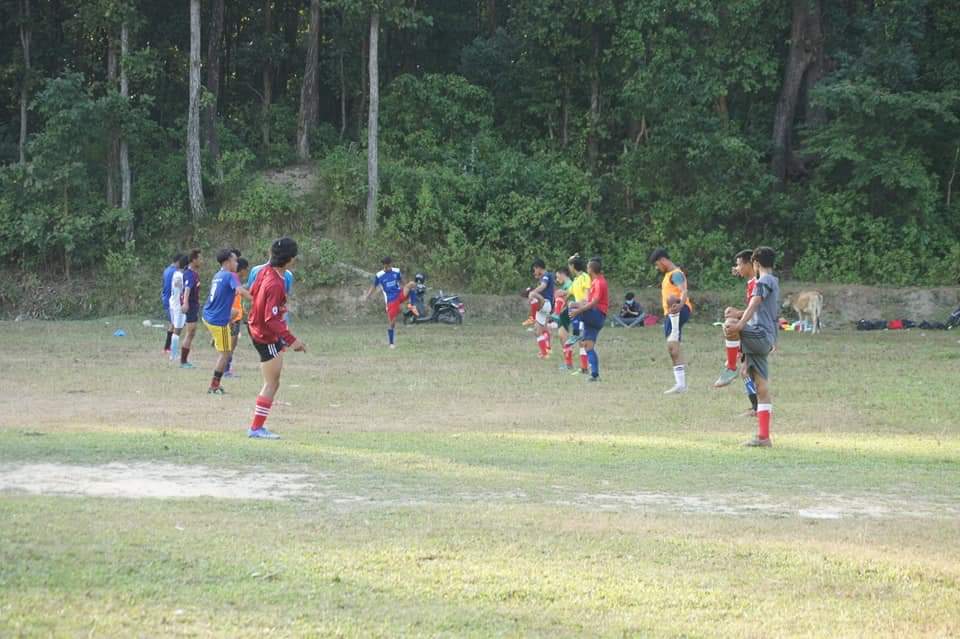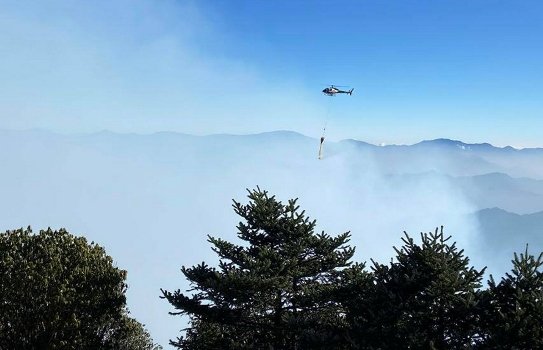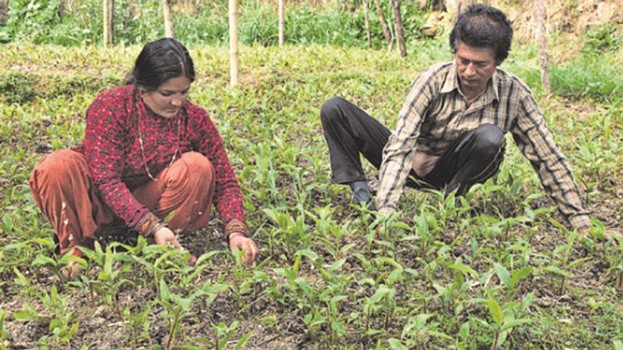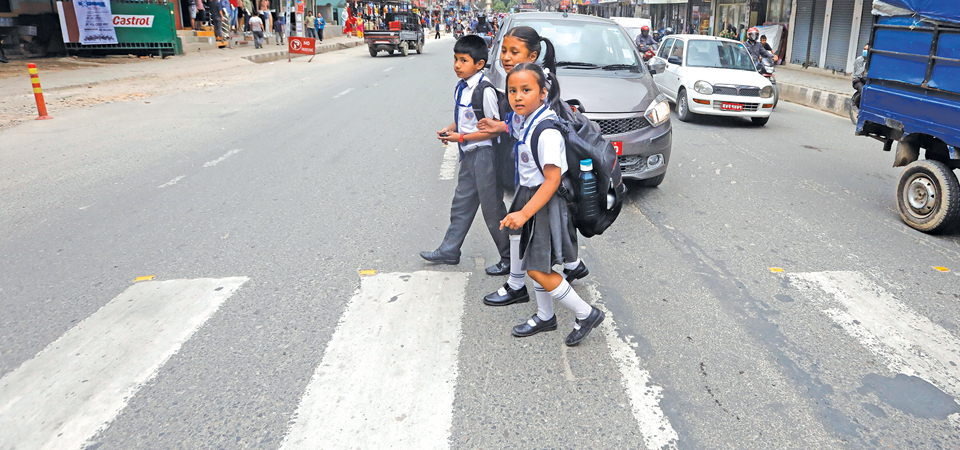Initiative taken to control wildlife parts smuggling
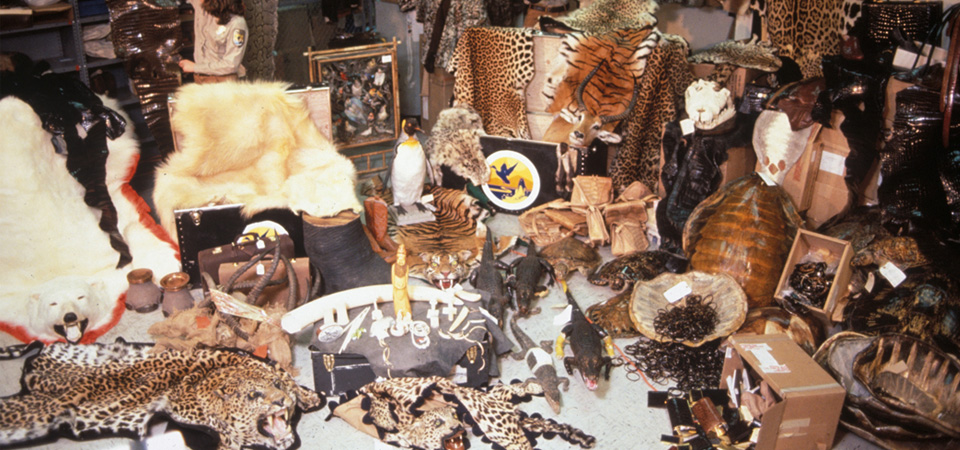
By Nayak Paudel
Kathmandu, July 15: The authorities responsible for wildlife protection have started taking necessary steps towards preventing wildlife parts from being trafficked to China.
China is said to be a major market for wildlife parts, because of which there has been a surge in smuggling rings trafficking wildlife parts in Nepal.
As per the officials from Department of National Parks and Wildlife Conservation (DNPWC), large stocks of wildlife parts from India are also trafficked to China via Nepal.
“There have been cases showing a possible increase in wildlife trafficking to China via Nepal. These wildlife parts are mostly destined for China’s Tibet region,” said Haribhadra Acharya, information officer at DNPWC.
Based on the demand for a variety of purposes including medicines, India and Nepal have emerged as a major supplier of the parts to China.
“Instances of poaching and illicit trafficking have been growing at an alarming pace in both India and Nepal. Several rings are sprouting up to reap benefits from the lucrative yet illicit and wrongful trade,” added Acharya.
As per the data from Kathmandu Division Forest Office, 44 Indian nationals and 11 Chinese nationals have been taken under custody for wildlife crimes from 1988/89 to 2017/18.
Similarly, on July 5, a joint team from Metropolitan Police Range, Kathmandu and Metropolitan Police Circle, Lainchaur arrested four Chinese nationals with a tiger skin, a cow skin, 20 musk deer pods, two tiger teeth, 20 kilograms of Rudraksha and 900 pieces of Buddha Chitta from Jyatha, Kathmandu.
“The arrest of Chinese nationals showed their direct involvement in wildlife trafficking. We are coordinating with organisations working in the wildlife sector and forest division office regarding the investigation,” said Deputy Superintendent of Police (DSP) Durga Prasad Dahal, chief at Lainchaur police.
Earlier, in March, 2018, two Chinese nationals were arrested from the Tribhuvan International Airport with 162 kilograms of pangolin scales. Upon investigation, the Central Investigation Bureau (CIB) found that the duo had arrived in Kathmandu via Istanbul and the pangolin scales came from Congo, Africa.
“Wildlife parts trafficking are mostly cross-border because Nepal is a very small market. The parts even enter Nepal via India so that it can be smuggled to other countries, mainly China. Nepal is a major transit for the trafficking of wildlife parts,” informed Deputy Inspector General of Police (DIGP) Dhiraj Pratap Singh, director at CIB.
Against such backdrop, the authorities say that they were taking necessary steps against the trafficking via Nepal.
“We are in regular contact with our counterparts across South Asia to tackle wildlife trafficking. We also have been coordinating with our Chinese counterparts to deal with the cross-border trafficking,” said Acharya of the DNPWC.
As per Acharya, wildlife parts are easily trafficked to Nepal via India due to the porous border. But getting them from Nepal to China can be tricky.
“The Himalayas along the Nepal-China border are difficult for authorities to keep proper surveillance and hard for smugglers to cross. Still the traffickers find some way, which we haven’t been able to identify properly. This is precisely why we are in coordination with authorities across the border to bust rampant wildlife trafficking at the earliest,” said Acharya.
Recent News

Do not make expressions casting dout on election: EC
14 Apr, 2022
CM Bhatta says may New Year 2079 BS inspire positive thinking
14 Apr, 2022
Three new cases, 44 recoveries in 24 hours
14 Apr, 2022
689 climbers of 84 teams so far acquire permits for climbing various peaks this spring season
14 Apr, 2022
How the rising cost of living crisis is impacting Nepal
14 Apr, 2022
US military confirms an interstellar meteor collided with Earth
14 Apr, 2022
Valneva Covid vaccine approved for use in UK
14 Apr, 2022
Chair Prachanda highlights need of unity among Maoist, Communist forces
14 Apr, 2022
Ranbir Kapoor and Alia Bhatt: Bollywood toasts star couple on wedding
14 Apr, 2022
President Bhandari confers decorations (Photo Feature)
14 Apr, 2022



